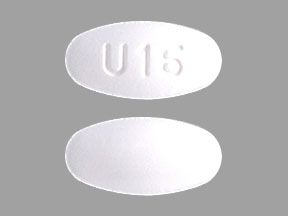
Percocet Coupons & Savings Card – Discount Prices from $24.75
Brand for: Oxycodone-acetaminophen
My prescription
Edit
7.5-325MG, Oxycodone-acetaminophen (90 Tablets)
Select pharmacy

CVS
$29.49
COUPON PRICE
Walgreens
$24.75
COUPON PRICE
Albertsons
$31.46
COUPON PRICE
Walmart
$223.45
COUPON PRICEPercocet savings card
Show this card to your pharmacist
Walgreens
$24.75
BIN
ID
PCN
GRP
019876
LH530247BF
CHIPPO
LHX
Powered by
Related opioid / acetaminophen combinations prescriptions
More prescriptions for pain
Related opioid / acetaminophen combinations prescriptions
More prescriptions for pain
Price history for Percocet (brand) & Oxycodone-acetaminophen (generic)
90 Tablets, 7.5-325MG
Average retail price for Percocet
Average retail price for Oxycodone-acetaminophen
Average SaveHealth price for Oxycodone-acetaminophen
Our price history data is based on aggregated prescription data collected from participating pharmacies in America. Our prescription data updates daily to reflect the latest price changes. If you notice a missing data point, it means there wasn't sufficient data available to generate a monetary value for that date.
Over the last 12 months, the average discount price of Percocet is $36.77 using the SaveHealth savings card. That's an average savings of 99.06% on Percocet with our discount card.
*Retail prices are based on pharmacy claims data, and may not be accurate when we don't have enough claims.
Percocet (Oxycodone-acetaminophen) dosage forms
Dosage Quantity Price from Per unit 2.5-325MG 5 Tablets $15.45 $3.09 2.5-325MG 8 Tablets $19.32 $2.42 2.5-325MG 9 Tablets $20.61 $2.29 2.5-325MG 10 Tablets $21.90 $2.19 2.5-325MG 12 Tablets $24.48 $2.04 2.5-325MG 16 Tablets $29.64 $1.85 2.5-325MG 20 Tablets $34.80 $1.74 2.5-325MG 21 Tablets $36.09 $1.72 2.5-325MG 30 Tablets $47.70 $1.59 2.5-325MG 60 Tablets $83.57 $1.39
| Dosage | Quantity | Price from | Per unit |
|---|---|---|---|
| 2.5-325MG | 5 Tablets | $15.45 | $3.09 |
| 2.5-325MG | 8 Tablets | $19.32 | $2.42 |
| 2.5-325MG | 9 Tablets | $20.61 | $2.29 |
| 2.5-325MG | 10 Tablets | $21.90 | $2.19 |
| 2.5-325MG | 12 Tablets | $24.48 | $2.04 |
| 2.5-325MG | 16 Tablets | $29.64 | $1.85 |
| 2.5-325MG | 20 Tablets | $34.80 | $1.74 |
| 2.5-325MG | 21 Tablets | $36.09 | $1.72 |
| 2.5-325MG | 30 Tablets | $47.70 | $1.59 |
| 2.5-325MG | 60 Tablets | $83.57 | $1.39 |
| 2.5-325MG | 90 Tablets | $124.20 | $1.38 |
| 5-325MG | 12 Tablets | $10.36 | $0.86 |
| 5-325MG | 20 Tablets | $11.26 | $0.56 |
| 5-325MG | 30 Tablets | $12.39 | $0.41 |
| 5-325MG | 60 Tablets | $15.78 | $0.26 |
| 5-325MG | 90 Tablets | $19.17 | $0.21 |
| 5-325MG | 120 Tablets | $22.56 | $0.19 |
| 7.5-325MG | 90 Tablets | $24.75 | $0.28 |
| 7.5-325MG | 28 Tablets | $13.90 | $0.50 |
| 7.5-325MG | 60 Tablets | $19.50 | $0.33 |
| 7.5-325MG | 112 Tablets | $28.60 | $0.26 |
| 7.5-325MG | 120 Tablets | $30.00 | $0.25 |
| 7.5-325MG | 180 Tablets | $47.92 | $0.27 |
| 10-325MG | 60 Tablets | $22.74 | $0.38 |
| 10-325MG | 90 Tablets | $29.61 | $0.33 |
| 10-325MG | 112 Tablets | $33.91 | $0.30 |
| 10-325MG | 120 Tablets | $35.03 | $0.29 |
| 10-325MG | 150 Tablets | $39.21 | $0.26 |
| 10-325MG | 180 Tablets | $43.39 | $0.24 |
What exactly is in Percocet?
Percocet is a prescription medication that contains two active ingredients: oxycodone and acetaminophen. Oxycodone is an opioid pain reliever, while acetaminophen is a non-opioid pain reliever that can also reduce fever.
Does a Percocet make you sleepy?
Yes, Percocet can cause drowsiness or sleepiness as a side effect. It contains oxycodone, an opioid, which can have sedative effects. It's important to avoid activities that require alertness, such as driving, until the individual knows how the medication affects them.
Is Percocet a strong painkiller?
Yes, Percocet is considered a strong painkiller. It is a combination of oxycodone, an opioid, and acetaminophen, a non-opioid pain reliever. It is typically prescribed for moderate to severe pain.
Why does Percocet have Tylenol in it?
Percocet contains acetaminophen (Tylenol) because it works in combination with oxycodone to enhance pain relief. Oxycodone is an opioid that targets pain receptors in the brain, while acetaminophen works by reducing the production of prostaglandins, which are chemicals in the body that cause pain and inflammation. Together, they provide more effective pain management than either component alone.
What is Percocet composed of?
Percocet is composed of two active ingredients: oxycodone, which is an opioid pain reliever, and acetaminophen, which is a non-opioid pain reliever that can also reduce fever.
